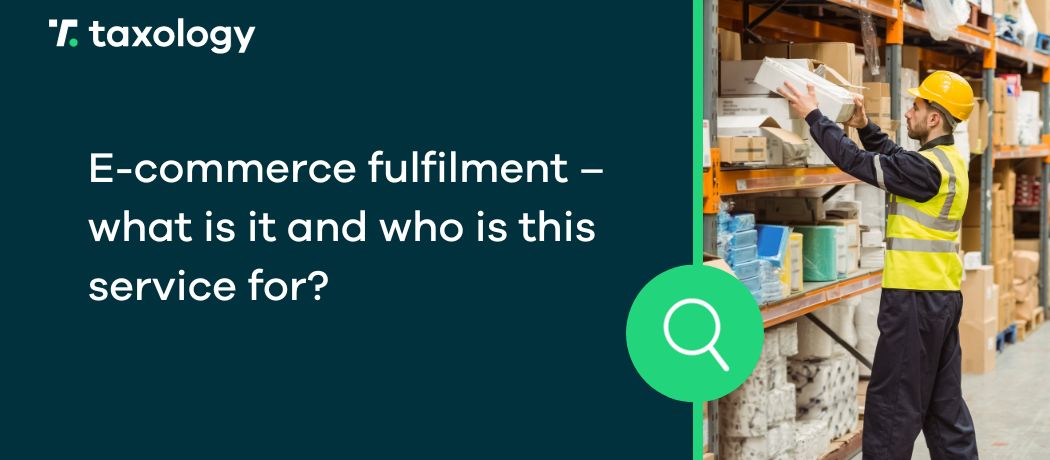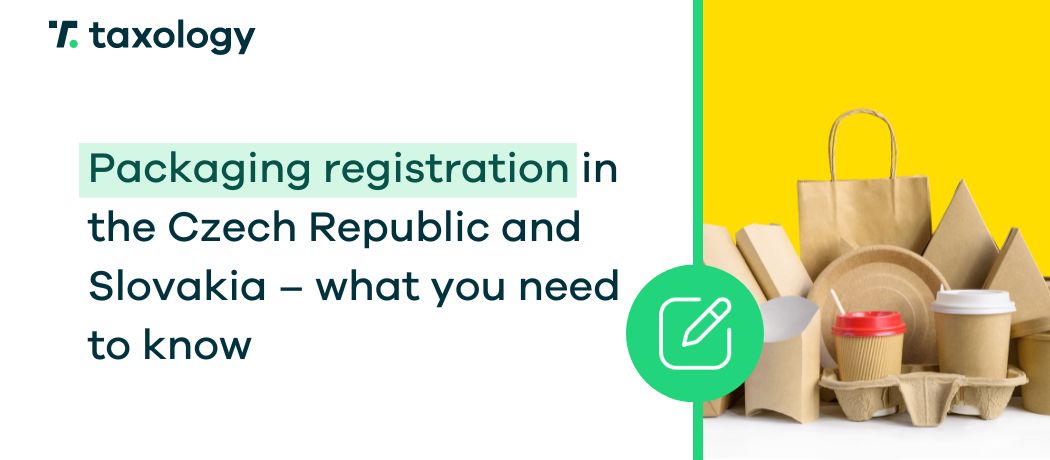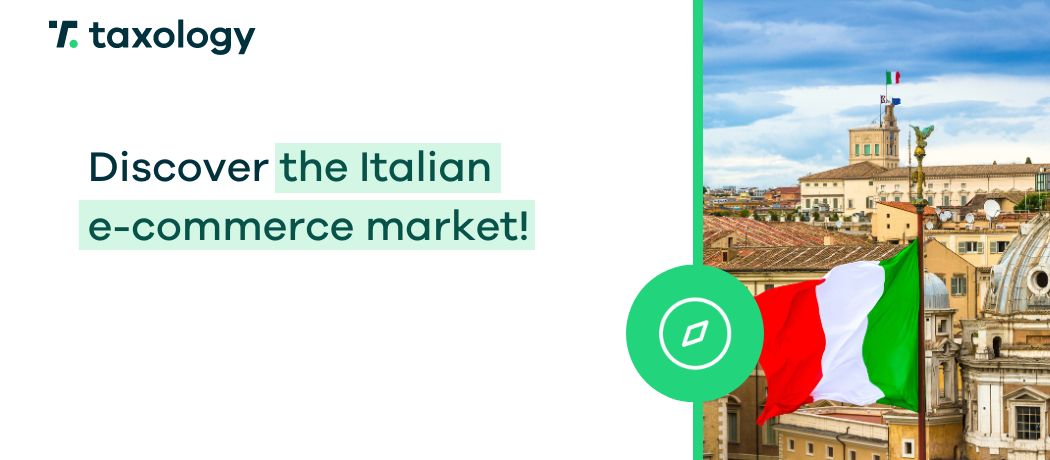France is one of the largest and wealthiest countries in Europe, making it an extremely attractive market for expansion for many entrepreneurs in the e-commerce sector. However, like any other […]
Read in: 5 minE-commerce fulfilment – what is it and who is this service for?
- Last update: 23.02.2024
- Published: 21.02.2023
- Read in: 8 min
The e-commerce industry faces a significant challenge of managing logistics processes, which becomes more complex as a company expands and considers expanding overseas. To address this challenge, the e-commerce fulfilment service was developed to assist e-commerce companies in effectively handling these logistical tasks with ease.
What is an e-commerce fulfilment service?
Fulfilment is a specialised service provided to e-commerce companies to delegate the tasks associated with order processing and delivery. It includes various components, including:
- Receiving merchandise from customers or manufacturers and organising inventory.
- Selecting products and preparing orders for shipment.
- Dispatching orders through chosen shipping providers.
- Managing returns and addressing customer complaints.
When needed, the fulfilment service can offer specific services tailored to products or individual stores, such as personalised packaging, inclusion of additional items in shipments or documents, and other customizations. By opting for fulfilment, online shops can focus on their core competency of selling while delegating the handling of orders to an external company that specialises in this area. Depending on the company’s needs, the fulfilment service can be utilised for all sales or specifically for international markets. An increasingly popular approach is to fully outsource this aspect of e-commerce as part of omnichannel order fulfilment, which involves managing all sales channels from a centralised warehouse.
What advantages does a fulfilment service offer?
The benefits of an e-commerce fulfilment service can be condensed into 3 main categories:
- Cost reduction
- Faster order processing
- Scalability
However, it becomes evident as we delve into the various categories that the advantages of the service extend beyond expectations and significantly contribute to the overall business strategy.
1. Cost reduction
Financial considerations are frequently cited by companies as a primary motive for choosing fulfilment services. By utilising e-commerce fulfilment, online stores can decrease or even eliminate various expenses, including:
- Costs associated with warehouse space and management.
- Expenses related to warehouse equipment and maintenance.
- Staffing costs for shipping and logistics teams, including recruitment expenses.
- Material and other costs associated with shipping.

These factors are particularly pertinent when considering cross-border fulfilment services during the expansion of e-commerce into new markets. Without the support of a fulfilment company, the responsibility of establishing contracts with courier services and managing packaging and shipping processes within each country falls upon the company itself. In contrast, opting for an e-commerce fulfilment service can significantly reduce the costs and time involved in these procedures.
2. Faster order processing
From the perspective of customers and the reputation of online shops, swift shipping and the possibility of next-day or even same-day delivery can make a significant impact. E-commerce fulfilment service providers have streamlined processes and advantageous agreements with shipping carriers, allowing them to often achieve faster delivery times for parcels to customers.
This advantage extends not only to international orders but also to domestic ones. Thanks to special arrangements with carriers, fulfilment companies can process and dispatch orders received as late as the evening on the same day, a luxury that many e-commerce companies cannot afford. Therefore, external fulfilment services can also serve as a means to gain a competitive edge.
3. Scalability
Companies unprepared for intense seasonal peaks, such as the cycling industry’s surge during spring, face significant challenges and risks. Insufficient human resources and inadequate processes can lead to delays, errors, negative feedback, and a loss of customer trust.
However, by employing the services of a fulfilment company, these issues can be completely eliminated. Moreover, the same factors make scaling the business easier due to reduced requirements and costs associated with additional hiring. The cost of a fulfilment service is always tailored to the specific needs of the company.
Who is the fulfilment service for?
The utilisation of fulfilment services is common among companies that operate their own online stores as well as those primarily selling through marketplaces. When it comes to major marketplaces like Amazon, using their fulfilment service known as Amazon FBA (Fulfilled by Amazon) is almost essential due to the significant sales benefits it offers. More details about this can be found in our article – What is the FBA sales model on Amazon?
However, it is unusual for a marketplace to have its own e-commerce fulfilment service. Therefore, in this article, we will focus on exploring alternative options.
1. Companies wishing to save warehousing, logistics, personnel and processing costs
The primary and also the largest group of companies that can benefit from a fulfilment service includes those where it is financially and operationally advantageous. To determine this, a cost analysis related to managing goods, warehouse space, and shipping can be conducted.
However, it is also crucial to consider the broader impact of these processes on the company’s overall operations. Increasingly, businesses are opting to outsource e-commerce fulfilment in order to concentrate on their core activities of marketing and sales, which take top priority. Cost reduction becomes a secondary consideration in this case, as such a model supports sales growth while simultaneously helping to reduce expenses.
While there may be situations where the traditional picking and shipping method is not feasible, such as with products requiring specific storage conditions or specialised preparation, such exceptions are becoming rarer. There are already companies that offer services like shipping food or furniture with additional protective measures.

2. Brands and other organisations lacking the necessary resources and expertise in shipping
More and more companies that previously relied on distributor networks, brick and mortar stores, as well as other B2B channels are now transitioning to an e-commerce sales model. However, this shift presents several challenges, particularly in managing order processing and shipping, which they may not be adequately prepared for.
For these companies, a fulfilment service proves to be highly beneficial as it enables them to outsource various capabilities that would otherwise be quite burdensome to handle internally.
3. Companies looking to develop their cross-border sales
For e-commerce companies aiming to develop their cross-border sales, fulfilment services often present the most favourable solution, streamlining the process and reducing various expenses, as discussed in the previous section of this article. The capability to enter foreign markets by providing affordable and speedy delivery offers an immediate advantage, enabling competition with other companies in that particular country. However, it is crucial to keep in mind that when storing goods abroad, VAT obligations must be fulfilled in the respective country, which brings us to our next point.
Tax-related difficulties associated with fulfilment services
When an entrepreneur, (e.g. an e-commerce company), stores goods in a foreign country, there is a legal obligation to register and pay VAT in that specific jurisdiction. This obligation applies regardless of whether the goods are stored in the entrepreneur’s own warehouse or as part of a fulfilment service. Consequently, companies looking to expand their business in this way must face additional administrative procedures.
This requirement can pose a significant challenge for companies seeking to enter new markets. However, the process can be significantly simplified by enlisting the assistance of companies that offer VAT compliance services. These services involve outsourcing all tasks related to foreign VAT registration and settlement to a team of experts from an external company, such as Taxology.
Companies offering fulfilment services
Fulfilment service companies are operating in almost every European market, including Poland. In Poland, notable companies in this field include Omnipack, LinkerCloud, and EUROCOMMERCE.
Omnipack runs warehouses in Poland and provides shipping services across Europe. The company excels in same-day and next-day delivery, particularly for Germany, Europe’s largest e-commerce market. Omnipack prides itself on a remarkable 99.2% rate of impeccably delivered orders.

LinkerCloud adopts a slightly different model compared to Omnipack. It serves as a hub that connects e-commerce companies with reliable logistics partners throughout Europe. This service facilitates easy access to warehouses in multiple countries, enabling accelerated delivery speeds and increased competitiveness when expanding into new markets. Additionally, LinkerCloud manages returns and handles customer complaints.
EUROCOMMERCE specialises in swift delivery of goods in Germany and the Czech Republic. The company focuses on personalised approach and offers customised delivery options for bulky items, eliminating the need for pallets and providing flexibility in scheduling deliveries according to customer preferences.
Is it worth using an e-commerce fulfilment service?
While it is impossible to provide a definite answer, considering the potential benefits and the growing trend towards this solution, it strongly suggests that this service holds the future of e-commerce.
Therefore, unless there are evident drawbacks specific to the product, it is advisable to explore the merits of this service.
If you want to read more, check our articles about:
- Amazon Seller Central and Amazon Vendor Central
- E-commerce payment systems in Europe
- Incoterms 2020
- Split Payment Mechanism
- Consignment warehouse.
And if you want to broaden your knowledge about VAT, you can read about VAT registrations in: Germany, France, Italy, Spain and the UK, the European VAT rates and issues that may arise during the registration in Great Britain.




